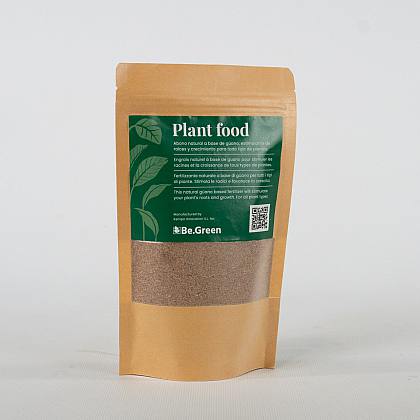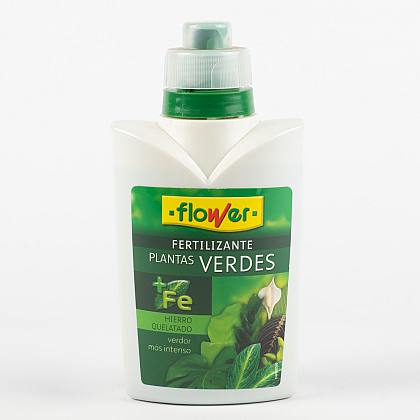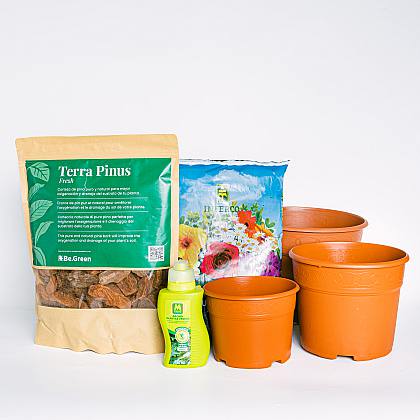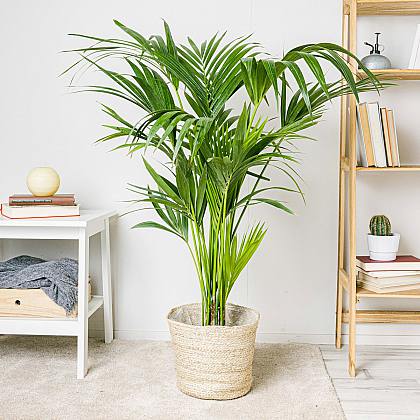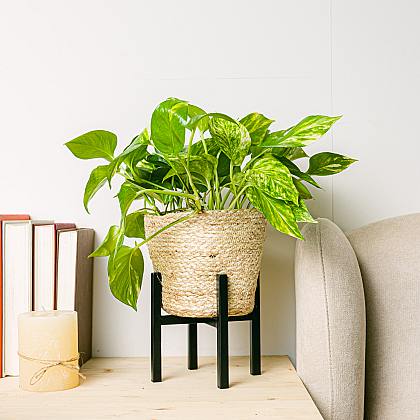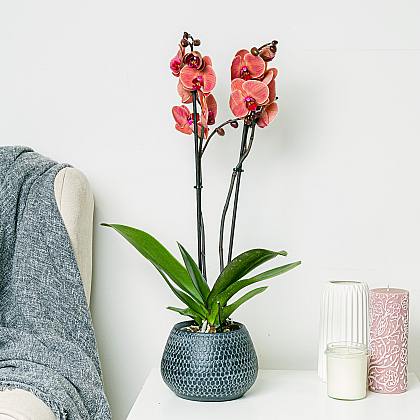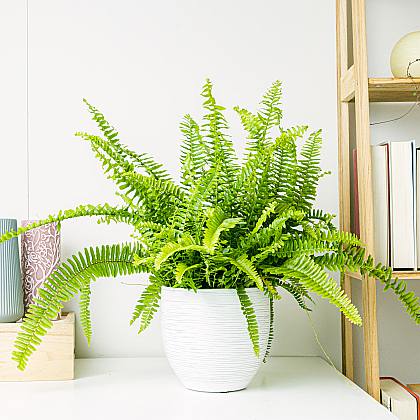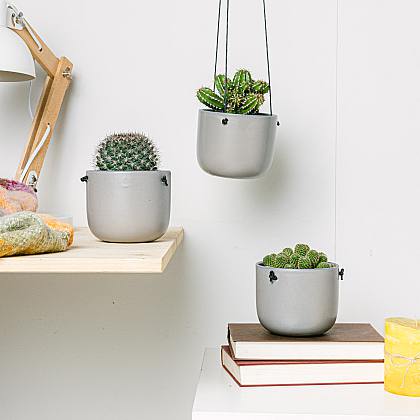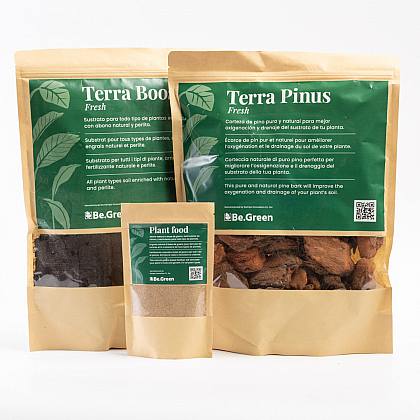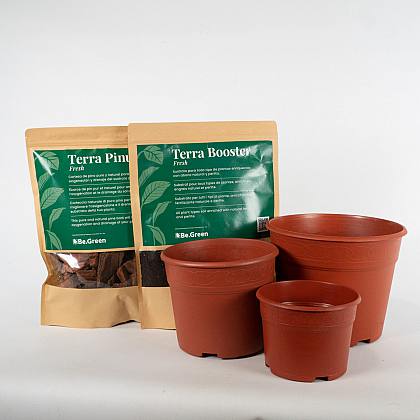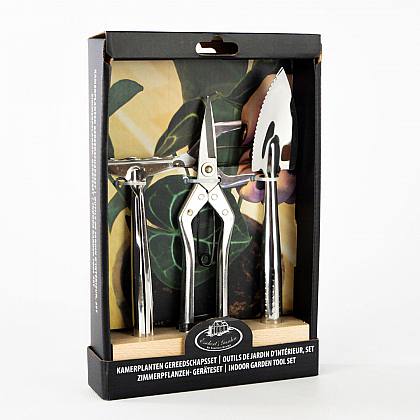When and how to use compost
Very few people are aware of the importance of applying fertiliser correctly and those who do not go beyond fertiliser altogether, apply it without taking into account the particular needs of the plant. While fertiliser is the plant's food, it must be used properly.
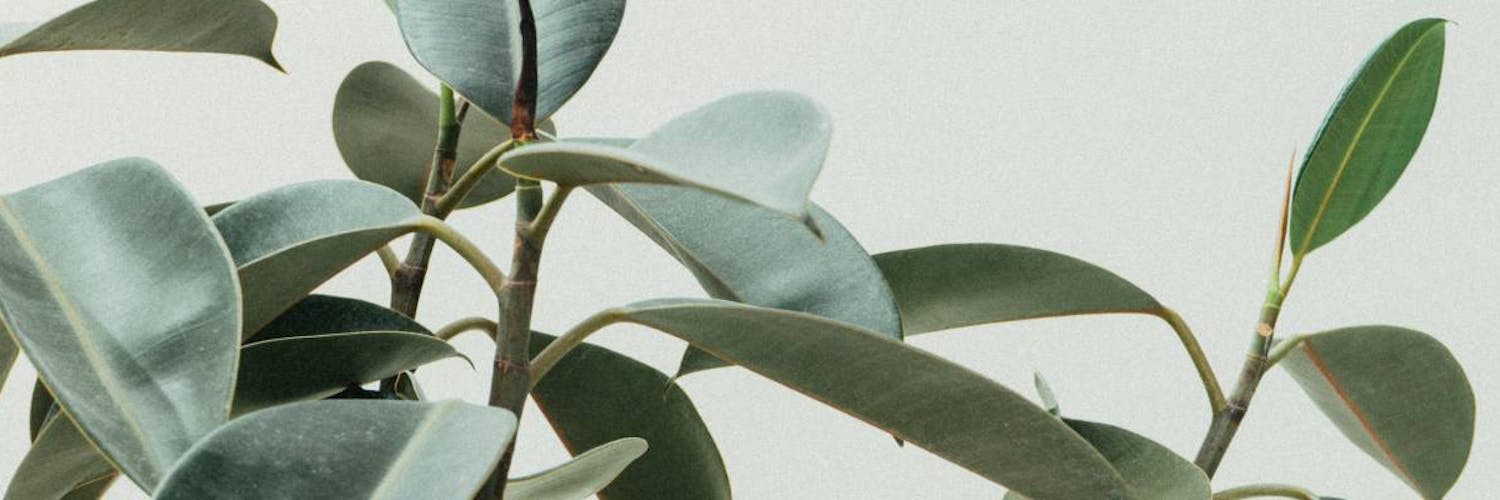
When you talk to someone about the tasks that must be done to take care of a plant, in addition to watering, fertilizing is included as something everyday and simple; but in reality very few people are aware of the importance of applying fertilizer correctly and those who do not go beyond fertilizer completely, apply it without taking into account the particular needs of the plant. While compost is the plant's food, it must be used appropriately.
Used well, fertilizer will do wonders to your plants, turning them into very prosperous specimens, with beautiful leaves and spectacular blooms; if you use it badly you can even cause problems in the roots and make your plant transcend this material plane.
Our mission is to make your life easier, so we'll explain everything you need to know about compost, how and when to use it, right down to the types. We will be your allies so that you can feed your plants properly.
What is fertilizer?
Fertiliser is a substance with an active ingredient of organic or natural origin, which is used to feed the substrate, providing it with micro or macronutrients necessary for plants to grow and develop better. They can be of vegetable or animal origin and you can find them in different presentations on the market. While homemade mixes can be considered a type of compost, this time we'll be dealing with processed and packaged fertilizers. This is because it is much easier to have an idea of the nutrients it provides to the substrate and their proportion.
That being said, did you know that there is a difference between compost and fertilizer? Although you can use the terms more or less generically, insofar as both are substances that provide nutrients to the substrate, the big difference lies in the fact that fertilizer is of organic origin and therefore must be used differently from fertilizers.
Organic fertilizer is created when a natural material is naturally broken down by microorganisms, which digest the materials. This process transforms them, turning it into a stable product that can improve soil quality. There are a number of benefits that come from using organic fertilizers, especially when compared to using mineral fertilizers. While everyone has a place in the care and maintenance of plants, the use of fertilizers has very positive side effects.
Advantages of using fertilisers
- They have a higher residual effect than fertilisers, which reduces the frequency of application.
- They release their nutrients gradually. While it is true that this is why they do not act as quickly, it protects plants from excess nutrients, which can burn the roots.
- They improve the physical structure of the substrate. It increases porosity, the amount of oxygen available and corrects moisture retention capacity.
- Increases cation exchange capacity or CIC. The CEC is an indicator that refers to the amount of cations that the soil can retain, that is, it indicates the capacity of that substrate to retain nutrients. If the CEC is small, the soil cannot retain nutrients and loses them, making it unsuitable for feeding plants.
- Fertilizers, being organic, decompose which releases carbon dioxide and this helps to solubilize other nutrients in the substrate, making them easier for plants to absorb.
- They make the substrate more porous, allow water to infiltrate better, and prevent irrigation from running off the surface.
- It allows us to take advantage of organic waste, which can be processed to obtain fertilizers. They can even be made at home on a small scale.
- They improve and stimulate soil microbial activity.
- They are more sustainable and ecological, to the extent that they do not require as much energy to make, waste can be used and they also do not pollute water sources.
Types of Fertilizers
There are many ways to classify fertilizers. For example, we can talk about subscriptions according to their presentation. We have solid fertilizers such as compost, worm castings, and bokashi. Liquid fertilisers such as slurry and biol, as well as green fertiliser, which is very particular. We can also classify them as unprocessed fertilizers, such as manure, green manures, guano, poultry manure, and others. A processed credit memo is one that combines several elements to create a credit memo. Examples of this are compost and bokashi. Regardless of what criteria you use to classify them, some of the most commonly used fertilizers are:
- Manure
Manure is the excrement of herbivorous animals. They are rich in organic matter and provide a good level of nitrogen to the substrate. They are widely used because they improve the physical and chemical properties of the soil, as well as promoting the presence of beneficial microorganisms that improve fertility. The manure used as fertilizer is usually from sheep, horses, cattle and even chickens, known as poultry manure. In the past, the pigeon (palomina) was also used.
Cattle manure is the most widely produced and also one of the most beneficial. It is suitable for all types of crops and soils, it brings lightness to the clay soil, as well as refreshing the consistency of the substrate. It has a fairly long shelf life. As for the percentage of nutrients it provides, for each kilo of fertilizer it has 3.4% nitrogen, 1.3% phosphorus and 3.5% potassium. Although they are not the highest levels, it is precisely this characteristic that makes it so versatile and its main attraction is its conditioning of the substrate. In any case, it can be combined with other types of fertilizers to obtain the ideal levels for each plant species.
Chicken manure has a high nitrogen content, which makes it ideal for plants and gardens as it stimulates flowering and the growth of green and radiant foliage. These properties are conferred by the diet of the birds, which not only consume a lot of grains but also supplement with insects and earthworms. Poultry manure has a percentage of 15% nitrogen, 10% phosphorus and 4% potassium.
Horse manure is ideal for cold and very compact soils, because in addition to the main macronutrients, it also makes the substrate lighter and receives better oxygenation. It acts more quickly than others, as it ferments easily. Each kilogram of this fertilizer has a ratio of 6.7% nitrogen, 2.3% phosphorus and 7.2% potassium.
- Worm castings
are the excrement of earthworms, which during the process transform organic waste into what is known as one of the highest quality organic fertilizers. It has a good content of major nutrients (NPK) but also provides micronutrients such as iron, manganese, copper, zinc and others. As if that were not enough, it allows the substrate to be corrected and regenerated as it has a high content of bacteria (about 200 million per gram).
Worm castings or vermicompost can be used on any type of plant or crop, without fear of affecting its production or balance thanks to its pH that ranges from 6.5 to 7.5. As for the proportions of nutrients, it has a percentage of organic matter between 15 and 30%, while its concentration of nitrogen is 3%, phosphorus 3%, potassium 2% and calcium 2%.
- Bokashi Bokashi
is a type of organic fertilizer invented by Japanese farmers. It means "fermented organic matter" and rather than referring to the elements used to make it, it is a composting technique that consists of letting organic materials decompose in a fermentation process. This increases the variety and quantity of microorganisms in the substrate and provides several nutrients, and can also be done locally with the available elements.
By using active yeasts fed with molasses and wheat germ, it is a faster process than composting and allows all types of organic waste, including meat and dairy, to be used. In about 15 days it is possible to complete the fermentation process. It traditionally includes a mixture of green elements, which are high in nitrogen, and a "brown" material, which are high in carbons and water and can be manure.
- Guano Guano
is derived from the Quechua word Wanu and means compost. It is basically produced from the droppings of seabirds, seals and bats. These animals have a diet based on seafood, so their feces are loaded with lots of nitrogen, phosphorus, and potassium.
Guano is a very complete fertilizer, which allows the soil to regenerate, improves the quantity and quality of nutrients in the substrate, as well as having fungicidal properties, which prevent pests and diseases. For this reason, it is one of the most widely used fertilizers for indoor plants.
- Green manure
Green manure is not only a fertiliser technique, but also a way of conditioning the substrate before planting. It involves sowing seeds of legumes, grasses or suitable plants (clover, crotalaria, pigeon pea, alfalfa, sunflower, oats, among others) that are then cut and incorporated into the substrate, buried, still green. This improves soil conditions and restores the natural balance.
Green manure also creates a series of biochemical reactions that stimulate the microbial growth of the substrate, which allows the mineralization of nutrients and contributes to the proper absorption of these compounds by plants. This technique also increases the amount of organic matter in the substrate, raises the pH of the soil, improves water retention capacity and reduces erosion.
When to usefertilizer
There are two key times to use fertilizers: before planting seeds or sowing the plants and during the time of growth and development. Using organic fertilizers before planting allows the soil to be conditioned, creating the perfect environment for the plant to develop beautiful and radiant. The best part is that organic fertilizers are usually quite mild, so far from exposing your plant to excess nutrients (which can happen with chemical fertilizers), you will be providing it with a medium with enough organic matter, a good bacterial balance and an adequate level of nutrients.
It's a good idea to use fertilizers during the plant's growing and flowering season, which usually coincides with the warm season of the year: spring and summer. Depending on the temperatures where you live, you can create a fertiliser schedule that allows you to condition your soil and feed your plant so that it has the nutrients it needs to grow, flower and bear fruit.
With organic fertilizers, it's best to start at the beginning of spring. Repeat every month and a half. Although with this type of material it is not so easy to commit excesses that damage the plant, it is necessary to always follow the manufacturer's instructions. Each type of fertilizer has a particular concentration, which must be respected, but which could be combined with other fertilizers to meet the particular needs of the plant.
How to use fertilizer
It is very important to follow the manufacturer's instructions for applying fertilizer. If you're using home-grown fertilizers like bokashi or compost, you should know that many should never be applied directly to the plant. For example, manure should not be fresh on plants; Not only because of the smell but because it can have the opposite effect. Organic fertilizer goes through a drying process and even fermentation to be suitable for use; For this reason, it is advisable to buy it packaged.
Bokashi is not used on plants, but must be mixed with the substrate or put in a compost bin to finish degrading. The liquids that come from this technique can be used during irrigation. As for guano, it can come in powder or liquid form, so follow the instructions on the packaging so you can get the most out of it. Traditional compost can be used to prepare substrate, dissolved in water for irrigation, strategically buried to improve soil conditions, or as mulch to improve moisture retention.

